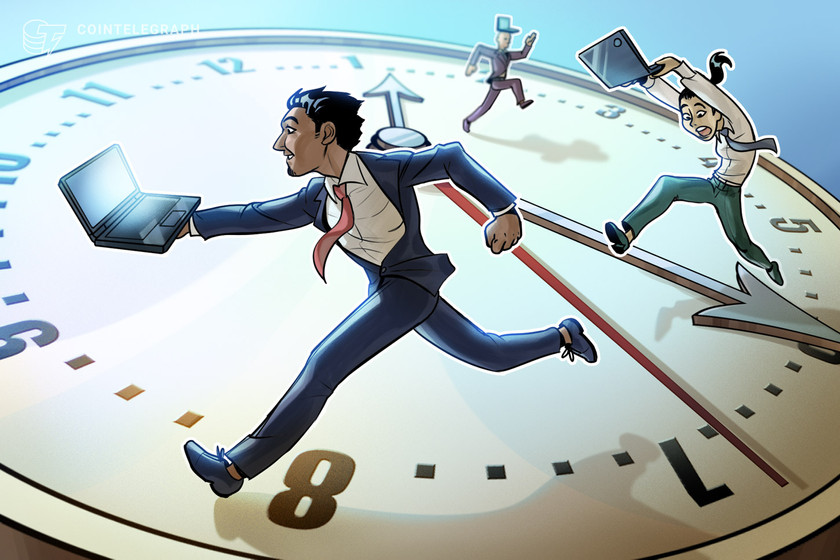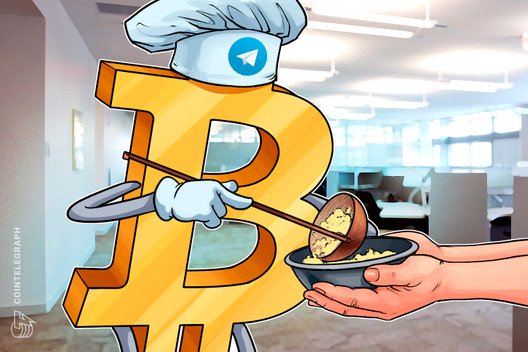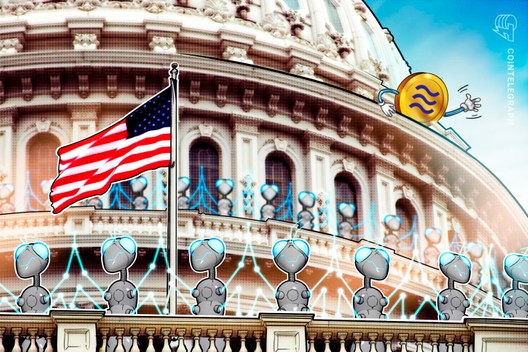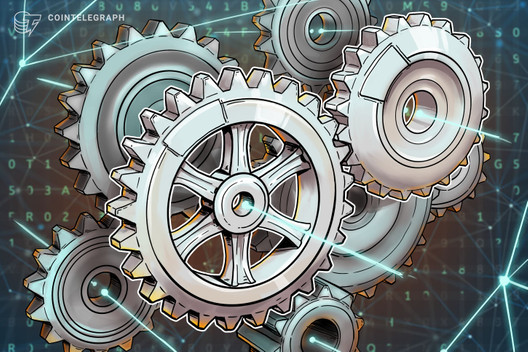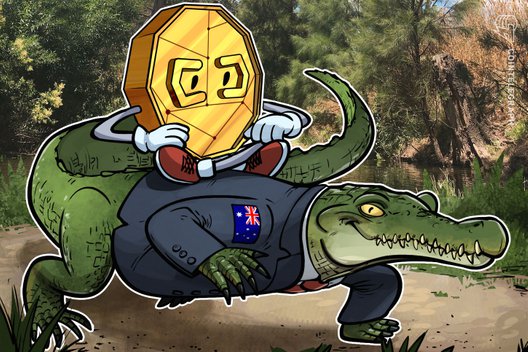AI can be a ‘creative amplifier’ — Grammy chief exec Harvey Mason Jr.
Using artificial intelligence (AI) in creative industries is not an entirely new phenomenon. Whether in color-correcting images or cleaning up vocals, the technology has been deployed for years.
However, since the emergence of generative AI chatbot ChatGPT made AI tools widely accessible to the public, there has been a stir surrounding the technology’s place in the arts. Music industry giants like Universal Music Group have been active in trying to manage AI-generated content.
Most recently, the Recording Academy — the institution behind the yearly Grammy music awards — updated its guidelines for the 66th Grammy Awards nominations to reference AI-generated music.
The Academy’s stance allows music with AI elements to be nominated for an award, but the category for which it is nominated — e.g., songwriting — must be created by a human. The institution said it doesn’t want to limit innovation but is still highlighting human creativity.
Cointelegraph spoke with Harvey Mason Jr., a record producer and the current CEO of the Recording Academy, about the future of the music industry with AI in the picture.
When asked why the Academy started to outline rules for AI usage in Grammy-eligible songs, Mason said he and his colleagues quickly realized there would be implications in the submission process.
“We had to understand that this technology was being used and being deployed by creatives. Being the organization that is celebrating music and excellence in awarding creativity, we knew that this was going to have an impact on how we made those decisions or how we evaluated the music.”
He gave the example of an AI composition being eligible for a composing award, so long as the human participation or contribution is significant, a factor determined through a process of de minimis as defined in the Grammy rulebook.
Mason said the Academy has been doing a lot of “studying and working” with members of the creative community, members of its copyright office, different platforms, labels and legal experts to determine AI eligibility.

“This is an ongoing process and something we don’t proclaim to have all the answers to, and we know we haven’t completely cracked how this is going to be handled,” he stated. “The speed at which technology is moving, AI and generative learning, we’re going to have to watch this, maintain it, update it and continue to move as technology moves.”
Magazine: BitCulture: Fine art on Solana, AI music, podcast + book reviews
He said the rules as we know them now are not “set in stone” and will be used to approach the 66th Annual Grammy Awards and will be reevaluated to see how artists and creators are using the technology in the next year.
Back in April, musician Grimes publicly announced her support for AI-enhanced music, saying that creators could even use her voice if she received 50% of all royalties.
While Grimes was on board with the technology, other musicians are not. Rapper Ice Cube called AI “demonic” in an interview and said he would take legal action against anyone using his likeness.
Mason said it doesn’t have to be one or the other, and he believes there can be a “symbiosis” between AI and human creativity, given the proper guidelines are in place.
“The role of the Academy is always to protect the creative and music communities. We’re not saying that AI should just be allowed to do whatever the heck it wants, however it wants to be deployed,” he said, “What I am saying is, we need to find what the rules and regulations are around it, whether that’s within our music community and within our creative ecosystem or even on a federal legislative level.”
That being said, he firmly believes that the technology has a “role” within the industry going forward.
“It’s too late to try and pretend like it’s not and block or ban AI from the process. It’s now more about how we are going to utilize it as a creative amplifier, not a creative replacement.”
One of the most recent examples of this can be seen in the Beatles’ upcoming release, for which Paul McCartney said he employed AI to help craft “the final Beatles record.” AI was used to replicate the voice of his former bandmate John Lennon.
Mason said that as a producer, he has also been using AI for years for tasks such as frequency analysis, mastering plugins and removing and cleaning up vocals:
“We talk about the scary side, but there is also the exciting side. Artists being able to come up with new things that maybe we haven’t heard yet — songs, genres or styles of creating music that are new and innovative and iterative. As a creator, AI gives you a lot of ammunition to draw from, a lot of inspiration and ideas, and that’s, I think, a valuable part of what AI can do.”
He stressed that there have always been technological advancements that help creativity, speed up the process and make it more accessible. One example: Recording vocals and songs on a laptop wasn’t possible 10–20 years ago, whereas now, artists can “do a full album in their bedroom.”
“Technological advancements have made people create music differently and made consumers able to have more material to draw from. This is another advance in a long line of things that have changed and affected our industry for the creators since the beginning of when someone had the first technological advantage of building a drum over a log with skin,” he said, adding:
“I’m obviously excited about the potential, but I reserve my total support and excitement until we find out how we’re going to make sure that it’s fair and inclusive of the artists community and make sure they’re getting proper credit, proper payment, etc.”
When asked whether the emergence and integration of AI into the arts, particularly music, could spark a renaissance of appreciation for things created exclusively from the mind of humans, he said, “Potentially.”
“Look at synthesizers or keyboards that are meant to sound like other instruments. They do a pretty good job of it, but there’s also still a desire to really hear a band play together or a live orchestra or real instrumentation,” Mason stated, continuing, “Nothing against synthesized sounds — those are equally as important and just as creative. It’s just different forms of expression. There will be appetites for both, I’m sure.”
Related: Robot guest-conducts the Korean National Symphony Orchestra
However, he pointed out that although there may be a point when people say they want to hear music only created by humans, it may not always be distinguishable:
“With synthesizer instruments or with vinyl, those are sonic differences. As a consumer, you can hear the difference between a real orchestra and the keyboard or vinyl from a CD or a stream. When it comes to AI versus humans, there might be less of a difference there.”
“I still believe AI is not going to be able to create what humans can create. There’s something about just the human experience and the emotion and the heart that comes from what we do and what we contribute to the music. I don’t think it can be replicated yet,” Mason said.
He concluded by saying that the industry and consumers must begin to acknowledge that AI will play a part and have a hand in both the future of music and society at large.
“But I’m holding out hope that what we do and what we bring as humans and the shared experiences that we all have will continue to resonate with consumers in a way that will make us irreplaceable.”
Collect this article as an NFT to preserve this moment in history and show your support for independent journalism in the crypto space.

